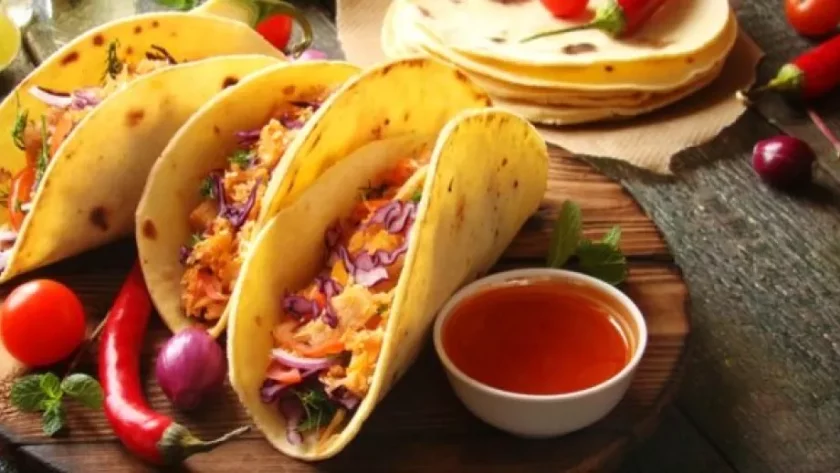Introduction
Mexican food culture is a fascinating tapestry of flavors, traditions, and historical influences that have shaped one of the world’s most beloved cuisines. From its indigenous roots to the fusion of Spanish and global influences, Mexican cuisine offers a rich and diverse culinary experience. In this article, we will delve into the captivating world of Mexican food culture and uncover intriguing facts that highlight its uniqueness.
The historical backdrop of Mexican cuisine reveals the amalgamation of indigenous ingredients and cooking techniques with those introduced by the Spanish conquistadors. This fusion has given rise to a myriad of regional specialties, each with its distinct flavors and traditions. From the fiery chiles that lend their spice to dishes, to the ancient nixtamalization process that produces authentic tortillas, Mexican cuisine showcases a deep connection to its cultural heritage.
We will also explore the vibrant street food culture, where tantalizing tacos, tamales, and antojitos reign supreme. Additionally, we will delve into traditional Mexican drinks, such as tequila and mezcal, which have gained global recognition.
Join us on this delightful journey as we uncover the fascinating Mexican food culture facts that make this cuisine so extraordinary.
Traditional Mexican Cuisine
Mexican cuisine is a treasure trove of flavors and culinary traditions that have been passed down through generations. This section explores the essence of traditional Mexican cuisine, including its regional specialties, staple ingredients, and unique cooking techniques.
Regional Specialties
Mexico’s diverse geography and cultural heritage have given rise to a wide array of regional specialties. Each state boasts its own culinary traditions and iconic dishes. From the Yucatan’s succulent cochinita pibil to Oaxaca’s complex and flavorful mole sauces, exploring the regional specialties offers a glimpse into the vibrant tapestry of Mexican cuisine.
Staple Ingredients
At the heart of Mexican cuisine lie a few staple ingredients that form the foundation of countless dishes. Corn, known as “maíz” in Spanish, holds a sacred place in Mexican culture. It is transformed into tortillas, tamales, and a variety of corn-based dishes. Chiles, ranging from mild to fiery hot, add depth and complexity to Mexican flavors. Other essential ingredients include beans, rice, and tortillas, which are integral components of traditional Mexican meals.
Cooking Techniques
Mexican cuisine boasts a range of distinctive cooking techniques that contribute to its unique flavors. Mole, a complex sauce made from a blend of chiles, spices, and sometimes chocolate, showcases the artistry of Mexican cooking. Nixtamalization, the ancient process of treating corn with an alkaline solution, produces the flavorful and nutritious masa dough used in tortillas. Slow-cooking methods like barbacoa and adobo infuse meats with rich, savory flavors.
Immerse yourself in the world of traditional Mexican cuisine, where regional specialties, staple ingredients, and cooking techniques come together to create a culinary experience like no other.
Street Food Culture: A Taste of Authentic Mexican Flavors
Mexican street food culture is a vibrant and integral part of the country’s culinary landscape. From bustling street corners to lively food markets, the streets of Mexico are filled with enticing aromas and mouthwatering delights. This section explores the diverse and delicious world of Mexican street food, offering a glimpse into the authentic flavors that captivate locals and visitors alike.
Taco Culture
Tacos are the crown jewels of Mexican street food, revered for their simplicity and versatility. From succulent al pastor tacos to crispy fish tacos, there is a seemingly endless variety to satisfy every palate. Each region boasts its own unique taco styles and fillings, showcasing the rich culinary heritage of Mexico.
Tamales and Antojitos
Tamales, steamed pockets of masa dough filled with savory or sweet fillings, are a beloved Mexican street food delicacy. These portable delights come in countless flavors, from traditional pork and chicken tamales to sweet options like pineapple or chocolate.
Antojitos, meaning “little cravings,” are a diverse assortment of savory snacks that cater to every craving. From crispy quesadillas to spicy elote (grilled corn on the cob) and comforting sopes, antojitos offer a delightful range of flavors and textures.
Fruit Stands and Agua Frescas
Mexican street food culture also embraces the refreshing and vibrant world of fruit stands and agua frescas. Colorful carts brimming with freshly cut fruits like mango, watermelon, and pineapple entice passersby. These juicy treats are often paired with agua frescas, which are traditional fruit beverages made from blending fresh fruits with water and a touch of sweetness. From tangy tamarind to refreshing horchata, these beverages offer a cool respite from the Mexican heat.
Embark on a culinary adventure through the bustling streets of Mexico, where tacos, tamales, antojitos, and fresh fruit stands await, offering an authentic taste of Mexican street food culture.
Traditional Mexican Drinks: Savoring the Flavors of Mexico
Traditional Mexican drinks are a delightful and integral part of Mexican food culture, offering a refreshing complement to the vibrant flavors of the cuisine. This section explores the diverse world of Mexican beverages, from renowned spirits to unique and flavorful thirst-quenchers.
Tequila and Mezcal
Tequila and mezcal are two iconic spirits that have gained worldwide recognition. Tequila, made primarily from the blue agave plant, is renowned for its distinct flavor profile and is the key ingredient in classic cocktails such as margaritas. Mezcal, on the other hand, is made from various agave species and often boasts a smoky taste. Both tequila and mezcal have deep cultural roots in Mexico and are enjoyed straight, in cocktails, or as part of traditional celebrations.
Horchata and Tepache
Horchata is a creamy and refreshing rice-based beverage that is popular throughout Mexico. It is made by blending soaked rice with cinnamon, vanilla, and sugar, resulting in a sweet and fragrant drink. Horchata is often served over ice and enjoyed as a cooling treat on warm days.
Tepache, on the other hand, is a fermented beverage made from pineapple, water, and spices. The fermentation process gives tepache a unique tangy flavor with a hint of sweetness. It is a traditional drink that showcases the creativity and resourcefulness of Mexican cuisine.
Mexican Hot Chocolate
Mexican hot chocolate is a decadent and indulgent treat enjoyed during cooler months. It is made by dissolving chocolate tablets, typically flavored with cinnamon and other spices, in warm milk. The resulting beverage is rich, creamy, and bursting with robust flavors. Mexican hot chocolate is often topped with frothy foam and enjoyed with pan dulce (sweet bread) for a comforting and soul-warming experience.
Immerse yourself in the world of traditional Mexican drinks, from the iconic spirits of tequila and mezcal to the refreshing delights of horchata, tepache, and Mexican hot chocolate. These beverages are a testament to the vibrant and diverse flavors that make Mexican food culture so captivating.
Conclusion
In conclusion, exploring the fascinating realm of Mexican food culture reveals a treasure trove of flavors, traditions, and historical influences. From the diverse regional specialties that showcase the culinary heritage of each state, to the staple ingredients like corn, chiles, and tortillas that form the foundation of Mexican cuisine, every aspect tells a story of cultural richness and authenticity.
Mexican street food culture offers a tantalizing array of delights, from the beloved tacos to the steamed pockets of masa known as tamales. Fruit stands and refreshing agua frescas add a vibrant touch to the street food experience, while traditional Mexican drinks like tequila, mezcal, horchata, and Mexican hot chocolate provide a delightful complement to the culinary journey.
Moreover, Mexican food culture is deeply intertwined with celebrations and festivals, such as the Day of the Dead and Cinco de Mayo, where traditional dishes play a significant role in honoring and rejoicing in cultural traditions.
From the indigenous and pre-Hispanic influences to the fusion with Spanish and global flavors, Mexican cuisine has evolved and adapted over time, while still retaining its authentic essence.
Mexican food culture history information please visit FoodFury.us





